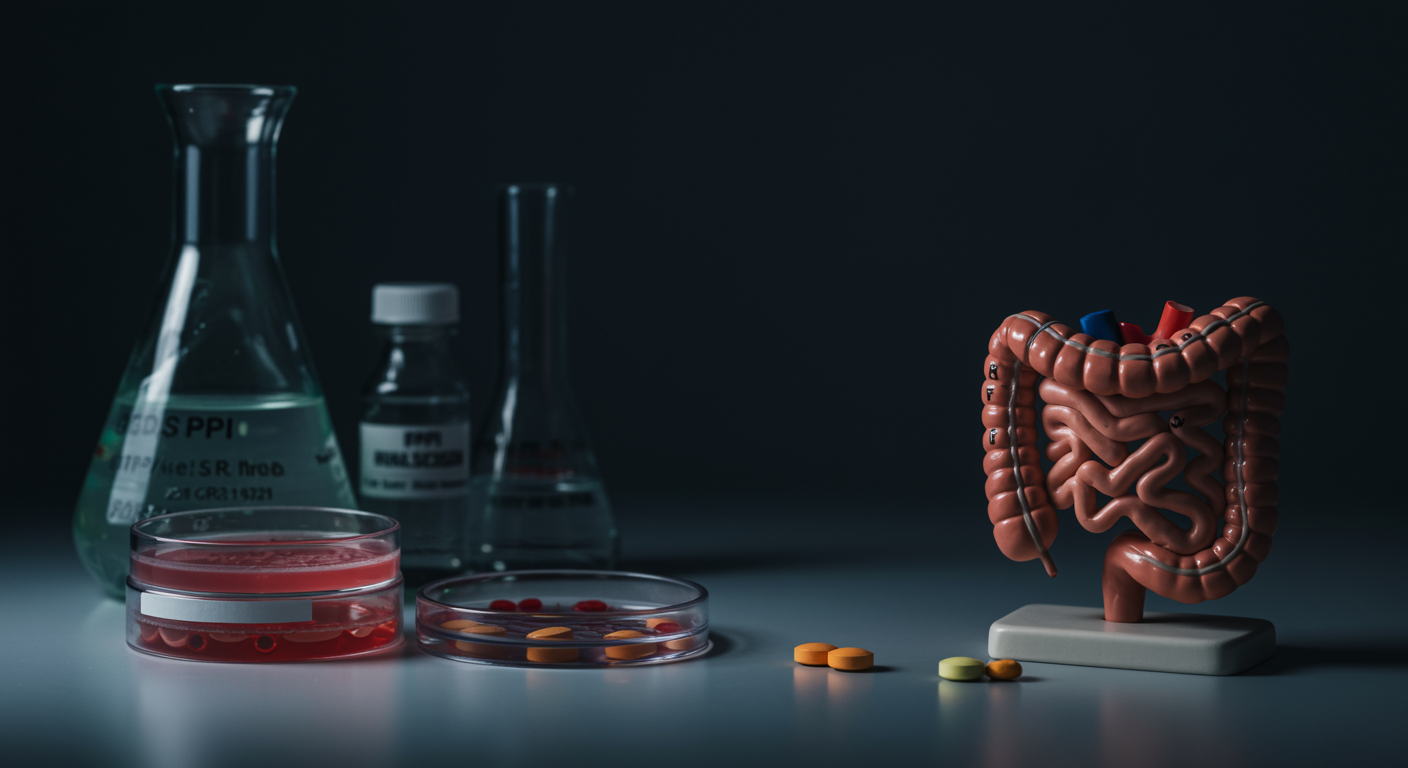Do Proton Pump Inhibitors Increase Risk of Small Intestinal Bacterial Overgrowth?
Yes, proton pump inhibitors moderately but significantly increase the risk of small intestinal bacterial overgrowth (SIBO) by approximately 71% according to this comprehensive meta-analysis. The increased risk appears related to PPI-induced changes in gastric acid levels that normally help prevent bacterial overgrowth in the small intestine.
Dr. Kumar’s Take
This meta-analysis adds another important consideration to the PPI risk-benefit equation. A 71% increased SIBO risk is clinically meaningful, especially since SIBO can cause symptoms that overlap with the original GERD symptoms - bloating, abdominal pain, and digestive issues. This creates a potential cycle where PPIs treat one problem but create another that might require additional treatment. It reinforces the importance of using PPIs judiciously and for appropriate durations.
What the Research Shows
This systematic review and meta-analysis examined multiple studies investigating the relationship between proton pump inhibitor use and small intestinal bacterial overgrowth risk. The analysis included both case-control and cohort studies, encompassing thousands of patients across different healthcare settings and geographic regions.
The research demonstrated a consistent association between PPI therapy and increased SIBO risk across different study designs and patient populations. The relationship showed biological plausibility through PPI-induced reduction of gastric acid, which normally serves as a barrier against bacterial overgrowth in the upper digestive tract.
Study Snapshot
The meta-analysis included 19 studies with over 7,000 total participants, examining both community and hospital-based populations. Studies used various SIBO diagnostic methods including breath testing and small bowel aspirate cultures, with PPI exposure periods ranging from short-term use to chronic therapy lasting years.
Results in Real Numbers
- Overall SIBO risk increase: 71% higher with PPI use (OR 1.71, 95% CI 1.20-2.43)
- Dose-response relationship: Higher PPI doses associated with greater SIBO risk
- Duration effect: Longer PPI therapy correlated with increased SIBO prevalence
- Diagnostic method variation: Risk estimates consistent across different SIBO testing approaches
- Population differences: Similar risk increases seen in both community and hospital settings
- Geographic consistency: Findings replicated across different countries and healthcare systems
Safety, Limits, and Caveats
The meta-analysis was limited by heterogeneity in SIBO diagnostic methods, PPI dosing regimens, and patient populations across included studies. Some studies didn’t adequately control for underlying conditions that might independently increase SIBO risk, potentially affecting the precision of risk estimates.
The analysis couldn’t determine optimal PPI duration thresholds for minimizing SIBO risk while maintaining therapeutic benefits. Additionally, the reversibility of SIBO risk after PPI discontinuation wasn’t consistently assessed across studies.
Practical Takeaways
- Consider SIBO as a potential complication in patients on long-term PPI therapy
- Monitor for SIBO symptoms (bloating, abdominal pain, altered bowel habits) in PPI users
- Use the lowest effective PPI dose and shortest duration necessary for symptom control
- Consider SIBO testing in PPI patients with persistent or new digestive symptoms
- Evaluate PPI necessity regularly and attempt discontinuation when clinically appropriate
- Discuss SIBO risk as part of informed consent for long-term PPI therapy
Related Studies and Research
- Proton Pump Inhibitors Therapy and Risk of Clostridium Difficile Infection
- Pharmacology of Proton Pump Inhibitors
- ACG Clinical Guideline: Guidelines for the Diagnosis and Management of Gastroesophageal Reflux Disease
- Global Prevalence and Risk Factors of Gastroesophageal Reflux Disease
- Episode 25: The Great GERD Mistake - How Medicine Made Heartburn Worse and How to Fix It
FAQs
What symptoms suggest SIBO in PPI users?
Common SIBO symptoms include bloating, abdominal distension, cramping, altered bowel habits, and excessive gas, which may develop or worsen during PPI therapy.
How is SIBO diagnosed in patients taking PPIs?
SIBO is typically diagnosed through hydrogen breath testing or small bowel aspirate culture, though breath testing is more commonly used in clinical practice.
Can SIBO resolve after stopping PPIs?
While some cases may improve after PPI discontinuation, SIBO often requires specific antibiotic treatment regardless of PPI status - consult your healthcare provider for proper evaluation.
Are some patients at higher SIBO risk than others?
Yes, elderly patients, those with diabetes, previous abdominal surgery, or other conditions affecting gut motility may face higher SIBO risk when taking PPIs.
Can probiotics help prevent SIBO in PPI users?
While some evidence suggests certain probiotics might help maintain gut microbiome balance, more research is needed to establish specific recommendations for SIBO prevention in PPI users - discuss options with your healthcare provider.
Bottom Line
Proton pump inhibitors moderately but significantly increase small intestinal bacterial overgrowth risk by 71%. This finding adds to the growing list of PPI-associated complications and reinforces the importance of judicious use, appropriate dosing, and regular reassessment of treatment necessity.


